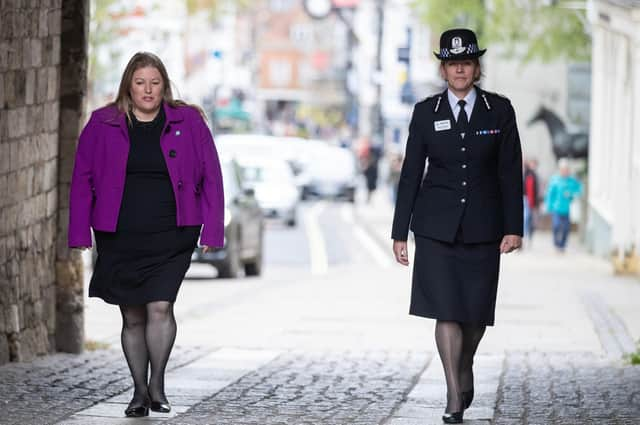Police misconduct hearings: Hampshire's crime commissioner Donna Jones writes to tell legally qualified chairs - remember proceedings should be open


In recent years there have been fears raised over the number of hearings that have been held in private, or where anonymity has been granted to the officer involved.
Critics have said that allowing a veil of secrecy to be drawn over the hearings means that in some cases other victims will not come forward.
Advertisement
Hide AdAdvertisement
Hide AdThe News reported that Hampshire’s police and crime commissioner Donna Jones had launched a review into the situation – but had emphasised that the public has a right to know about police misconduct.
Now she has written to the legally qualified chairs – the people who sit on the hearings – reminding them of the presumption of transparency.
Ms Jones said: ‘I have reviewed the process for misconduct hearings and believe that cases should be heard in public unless there is a compelling reason not to.
‘When an officer is dismissed, the details of the case should be published after the hearing.
Advertisement
Hide AdAdvertisement
Hide Ad‘This should give the public every confidence that the process is fair and robust.’
Hampshire police has always said there should be a ‘presumption of transparency’ around the hearings, but about a third of those heard in Hampshire where sanctions have been imposed have been heard behind closed doors.
One case, which was heard last year, was open but the officer’s name was not reportable, and he could only be referred to as Officer A. Even though he was sacked for gross misconduct, after pestering a domestic violence victim he had met through his job, he could not be named until earlier this year when The News revealed that he – Portsmouth PC Simon Bailey – had been placed on the College of Policing’s barred list.
At the time domestic abuse charities warned lives were at risk if his actions deterred women from reporting violence – and asked why his name was not made public to make sure no other women had gone through the same experience with him.
Advertisement
Hide AdAdvertisement
Hide AdIn her letter, which was sent on April 29, Ms Jones wrote: ‘You may have seen in the national press recently the coverage and the focus on police misconduct hearings and the public’s desire for information to be available.
‘As the Association of Police and Crime Commissioners’ national lead for victims, I have been part of a review panel looking at misconduct hearings, including those where the hearings are held in private and the
identity of the police officers are not shared at the conclusion of the hearing.
‘As Police and Crime Commissioner it is our duty to ensure there is a due process in place that is both fair and robust which includes ensuring that in all cases possible, hearings are held in public and/or the identity of the police officer is published at the conclusion of the hearing in accordance with your agreed processes.
I would be grateful if you could take this into consideration when delivering on cases referred by the Chief Constable of Hampshire Constabulary. Thank you in advance.’